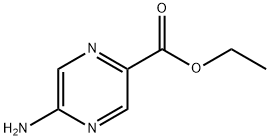Hi, I wanted to ask whether getting vaccines could increase the risk of developing diabetes. Are some vaccines more likely to affect blood sugar levels or insulin production? How soon after vaccination might any effects appear, and are they usually temporary or long-lasting? Can the ingredients in vaccines trigger diabetes, or is it more about how the body reacts? Are there ways to monitor or reduce any potential risks for children or adults after getting shots?
Can Vaccines Cause Diabetes? Understanding the Relationship Between Immunization and Blood Sugar
Related Encyclopedia

- 9004-10-8
- C256H381N65O77S6
- 5793.54364
- All (2)
- China (2)
- (2)
- 11070-73-8
- C254H377N65O75S6
- 5733.49
- All (2)
- China (2)
- (2)
- 11061-68-0
- C257H383N65O77S6
- 0
- All (2)
- China (2)
- (2)

- 7658-08-4
- C6H12O5
- 164.16
- All (0)
- China (0)
- (0)
- 13405-60-2
- C13H16O10
- 332.26
- All (0)
- China (0)
- (0)

- 67262-86-6
- C11H20N2O8
- 308.29
- All (0)
- China (0)
- (0)

- 160337-95-1
- C267H404N72O78S6
- 6062.89026
- All (1)
- China (1)
- (1)

- 844439-96-9
- C274H411N65O81S6
- 6103.97204
- All (1)
- China (1)
- (1)
- 116094-23-6
- C256H381N65O79S6
- 0
- All (1)
- China (1)
- (1)
- 87733-75-3
- C5H9NO3
- 131.13000
- All (23)
- China (21)
- (23)
Related Products More >
-
- 5996-10-1
- USD 525.0000
- 25kg
-
- 921-60-8
- Request For Quotation
-
- 9055-00-9
- Request For Quotation
- As your request
-
- 9055-00-9
- Request For Quotation
- 25KG/Drum
-
- 9055-00-9
- Request For Quotation
- kg
-
- 9055-00-9
- Request For Quotation
- 25kg/bag
-
- 9028-53-9
- Request For Quotation
-
- 9001-41-6
- Request For Quotation
- 25kg/Drum




Some people might notice temporary changes like mild fatigue or a low-grade fever after a shot, but that’s just your immune system doing its job—it’s not affecting your pancreas or long-term sugar control. So if you’re worried about diabetes, vaccines are generally safe and don’t increase your risk. Keeping up with regular check-ups and a healthy lifestyle is what really helps manage blood sugar over time.
A key distinction lies in immune specificity: vaccines train the immune system to recognize foreign antigens (e.g., viral proteins), not self-tissues. While vaccines can trigger temporary immune activation, this is localized and time-limited, unlike the chronic, misdirected immune activity in type 1 diabetes. For example, the immune cells and cytokines involved in vaccine responses target the introduced antigens, not beta cells, and resolve once immunity is established.
A common misconception is that certain vaccine components, such as preservatives or adjuvants, might induce diabetes. However, these substances—like aluminum salts—enhance immune responses without altering self-tolerance mechanisms that prevent autoimmune attacks. No vaccine component is known to disrupt the regulatory T cells that keep self-reactive immune cells in check, a critical safeguard against autoimmune diseases.
Understanding this separation is vital for public health, as unfounded fears can reduce vaccination rates. The protective benefits of vaccines, which prevent infections that can themselves disrupt metabolic health, far outweigh any hypothetical risks. Diabetes development is a complex, multifactorial process unrelated to the targeted, temporary immune activation caused by vaccines.
Certain autoimmune conditions involve the immune system mistakenly attacking the body’s own cells, such as pancreatic beta cells in type 1 diabetes. Vaccines, however, operate through controlled immune stimulation, presenting antigenic fragments rather than live pathogens in a way that avoids triggering autoimmune destruction. For example, children receiving routine immunizations like measles-mumps-rubella or hepatitis B vaccines may experience temporary soreness or fatigue, but their immune system activity does not extend to beta cell damage or chronic glucose dysregulation.
In practice, monitoring post-vaccine responses focuses on immediate and transient effects such as mild inflammation or fever. Healthcare protocols include observing high-risk populations with autoimmune tendencies, but large-scale immunization programs confirm that vaccines maintain an excellent safety profile regarding metabolic disorders. Real-world clinical experience reinforces that the benefits of preventing infectious diseases far outweigh any theoretical concerns, and proper immunization contributes to long-term public health without impacting diabetes risk.
Chemically, vaccine components such as adjuvants or preservatives have been rigorously tested for safety. For example, aluminum salts, commonly used adjuvants, enhance antigen presentation but are metabolized and excreted efficiently, with no evidence linking them to beta cell destruction. Similarly, thimerosal, a mercury-containing preservative phased out of most vaccines, was never associated with diabetes in epidemiological studies, and its ethylmercury derivative differs from methylmercury, a neurotoxin unrelated to autoimmune processes. The absence of plausible biological pathways connecting vaccine ingredients to diabetes underscores the lack of causal evidence.
In practical terms, the persistence of this myth reflects broader challenges in vaccine communication, where anecdotal reports or confounded data overshadow robust safety profiles. Vaccines undergo decades of preclinical and clinical testing, including monitoring for autoimmune conditions like diabetes, before regulatory approval. Post-marketing surveillance systems like the VAERS in the U.S. continue to track adverse events, yet no consistent pattern supports a vaccine-diabetes link. From an industrial perspective, manufacturers adhere to stringent quality controls to minimize impurities, while agencies like the FDA enforce standards ensuring vaccines meet the highest safety thresholds.
Cross-disciplinary insights from immunology, endocrinology, and epidemiology emphasize that diabetes development involves complex interactions between genetics, infections, and lifestyle factors. Vaccines, by preventing infections that may trigger autoimmune responses, likely play a protective role rather than a harmful one. Addressing vaccine hesitancy requires transparent education about their safety mechanisms and the societal benefits of immunization, ensuring communities prioritize evidence-based healthcare over unfounded fears.